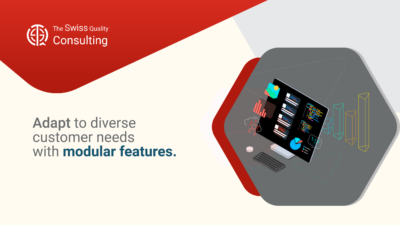Understanding and Overcoming Challenges in Fintech Development
Addressing Technological and Regulatory Barriers
The development of innovative fintech solutions for a diverse customer base presents both significant challenges and exciting opportunities, especially in regions like Saudi Arabia and the UAE. As fintech aims to address the unique financial needs of various customer segments, one of the primary challenges lies in navigating technological and regulatory barriers. Advanced technologies such as Artificial Intelligence (AI) and Blockchain are integral to fintech innovation, but their implementation requires robust infrastructure and regulatory compliance.
In cities like Riyadh and Dubai, where technological advancement is rapid, the challenge is not the availability of technology but its seamless integration and regulation. Ensuring compliance with local and international regulations, such as data protection laws and anti-money laundering (AML) standards, is crucial for fintech companies. Collaborating with regulatory authorities and leveraging regulatory technology (RegTech) can help fintech firms stay ahead of regulatory changes and maintain compliance.
Additionally, fintech companies must invest in building and maintaining a reliable technological infrastructure. This includes ensuring data security, system scalability, and user accessibility. By addressing these technological and regulatory barriers, fintech firms can create a solid foundation for delivering innovative solutions that meet the diverse needs of their customer base.
Designing User-Centric Fintech Solutions
Creating fintech solutions that cater to a diverse customer base requires a deep understanding of varied user needs and preferences. This involves conducting extensive market research and user testing to identify the specific financial challenges faced by different customer segments. In Saudi Arabia and the UAE, where the population is diverse and includes expatriates, locals, and various age groups, fintech solutions must be versatile and inclusive.
One approach is to develop user-centric fintech applications that are intuitive and easy to use, regardless of the user’s technological proficiency. Incorporating AI-driven personalization can enhance user experience by providing tailored financial advice and services. For example, AI algorithms can analyze user behavior and financial data to offer customized recommendations, such as savings plans or investment opportunities, that align with individual goals and risk tolerance.
Moreover, fintech companies should prioritize accessibility and inclusivity in their design. This includes offering multilingual support, ensuring compatibility with various devices, and providing features that cater to users with different financial literacy levels. By focusing on user-centric design, fintech firms can create solutions that are not only innovative but also widely adopted and appreciated by a diverse customer base.
Building Trust and Ensuring Security
Trust and security are paramount in the fintech industry, particularly when dealing with sensitive financial information. For fintech solutions to be successful, they must establish and maintain trust with their users. This is especially important in regions like Saudi Arabia and the UAE, where consumers may be cautious about adopting new financial technologies.
Implementing robust security measures, such as encryption, multi-factor authentication, and biometric verification, can help protect user data and transactions. Additionally, leveraging Blockchain technology can enhance the transparency and security of financial processes, providing users with greater confidence in the integrity of the system. Blockchain’s decentralized nature ensures that all transactions are immutable and traceable, reducing the risk of fraud and enhancing trust.
Building trust also involves transparent communication and customer education. Fintech companies should provide clear information about how their services work, the security measures in place, and the benefits of using their solutions. Offering customer support and educational resources can help users feel more comfortable and confident in adopting fintech services. By prioritizing trust and security, fintech firms can foster long-term relationships with their users and encourage widespread adoption of their innovative solutions.
Exploring Opportunities in Fintech Innovation
Leveraging Advanced Technologies for Fintech Innovation
The fintech industry is ripe with opportunities for leveraging advanced technologies such as AI, Blockchain, and the Metaverse to create innovative solutions. These technologies can revolutionize how financial services are delivered, making them more efficient, secure, and personalized. In regions like Saudi Arabia and the UAE, where technological adoption is high, the potential for fintech innovation is immense.
AI can enhance fintech applications by providing advanced analytics, automated customer support, and personalized financial advice. For instance, AI-powered chatbots can handle routine customer inquiries, freeing up human resources for more complex tasks. Machine learning algorithms can analyze vast amounts of data to detect fraud, predict market trends, and optimize investment strategies.
Blockchain technology offers numerous benefits for fintech, including enhanced security, transparency, and efficiency. By enabling secure, decentralized transactions, Blockchain can reduce costs and increase trust in financial processes. Smart contracts, which automatically execute agreements when predefined conditions are met, can streamline processes such as lending, insurance claims, and supply chain financing.
Integrating the Metaverse into Fintech Solutions
The Metaverse, a virtual reality space where users can interact with digital environments and assets, presents exciting opportunities for fintech innovation. Fintech companies can leverage the Metaverse to create immersive financial experiences, such as virtual banking branches, investment seminars, and customer service interactions. This can enhance user engagement and provide new ways for customers to interact with their financial institutions.
In cities like Riyadh and Dubai, where the population is tech-savvy and open to new experiences, integrating the Metaverse into fintech solutions can drive customer interest and adoption. For example, a virtual reality platform could allow users to explore financial products, simulate investment scenarios, and receive real-time financial advice from virtual advisors. This immersive approach can make financial education more engaging and accessible, particularly for younger generations.
Moreover, the Metaverse can facilitate virtual collaboration and networking among financial professionals, investors, and entrepreneurs. By creating virtual spaces for meetings, conferences, and workshops, the Metaverse can foster innovation and collaboration in the fintech industry. This can lead to the development of new products, services, and business models that address the diverse needs of a global customer base.
Driving Business Success Through Strategic Fintech Implementation
For fintech companies to achieve business success, they must strategically implement their innovative solutions to meet the needs of a diverse customer base. This involves aligning their offerings with market demands, regulatory requirements, and technological advancements. In regions like Saudi Arabia and the UAE, where the fintech landscape is rapidly evolving, a strategic approach is essential for staying competitive and achieving long-term growth.
One key aspect of strategic fintech implementation is collaboration. Fintech companies should seek partnerships with established financial institutions, technology providers, and regulatory bodies. These collaborations can provide access to resources, expertise, and networks that can accelerate the development and deployment of fintech solutions. For example, partnering with a traditional bank can help a fintech startup reach a wider customer base and gain credibility in the market.
Additionally, fintech companies should focus on continuous innovation and improvement. By staying abreast of technological trends and customer feedback, they can refine their solutions to better meet user needs and expectations. This proactive approach to innovation ensures that fintech solutions remain relevant and valuable in a dynamic market environment. By strategically implementing fintech solutions, companies can drive business success, enhance customer satisfaction, and contribute to financial inclusion and economic growth.
Conclusion
In conclusion, developing and implementing innovative fintech solutions for a diverse customer base involves navigating significant challenges and seizing exciting opportunities. By addressing technological and regulatory barriers, designing user-centric solutions, and prioritizing trust and security, fintech companies can create impactful and widely adopted services. Leveraging advanced technologies such as AI, Blockchain, and the Metaverse further enhances the potential for innovation and customer engagement. Through strategic implementation and continuous improvement, fintech companies can achieve business success, drive financial inclusion, and contribute to the economic growth of regions like Saudi Arabia and the UAE.
#Fintech #InnovativeSolutions #DiverseCustomerBase #BusinessSuccess #SaudiArabia #UAE #Riyadh #Dubai #ArtificialIntelligence #Blockchain #TheMetaverse #GenerativeAI #ModernTechnology #Leadership #ManagementSkills #ProjectManagement























